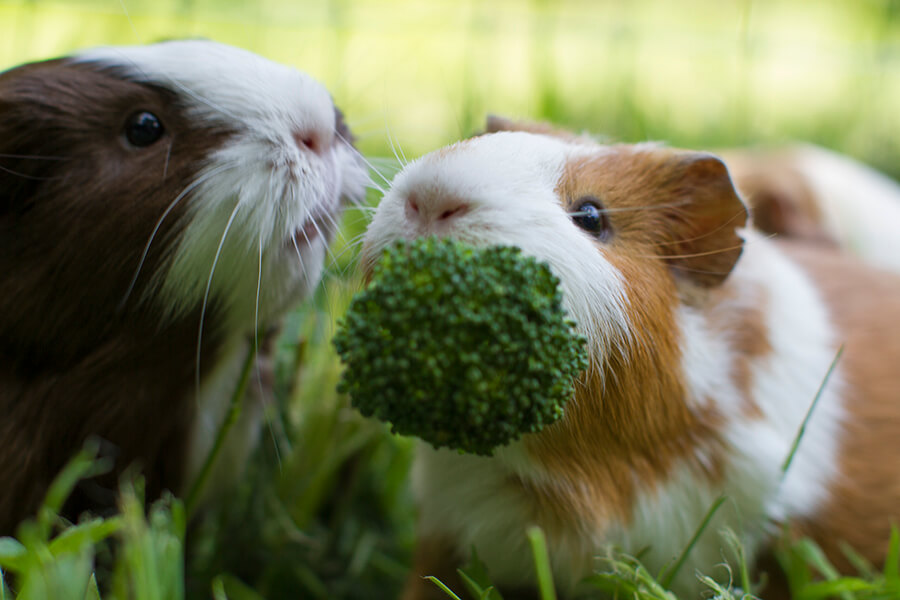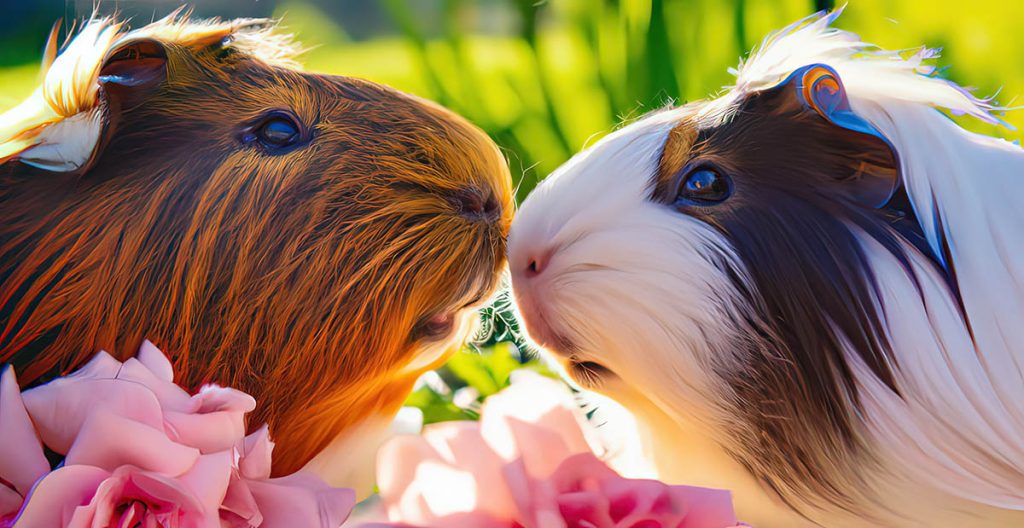Guinea pigs are social and friendly pets that are loved for their playful and affectionate personalities. However, like any other pet, guinea pigs can suffer from a variety of health problems. Skin problems are a common issue among guinea pigs, and they can be caused by a variety of factors, including parasites, fungi, bacteria, and poor nutrition. In this article, we’ll discuss the most common skin problems in guinea pigs, their symptoms, causes, and how to prevent and treat them.

Common Skin Problems in Guinea Pigs
Mange
Mange is a skin condition caused by mites. There are two main types of mange that affect guinea pigs: sarcoptic mange and chorioptic mange. Sarcoptic mange is the more severe of the two, and it can cause intense itching, hair loss, and lesions. Chorioptic mange is less severe, and it typically causes itching and scaling.
Fungal Infections
Fungal infections are caused by a variety of fungi that can affect the skin and hair of guinea pigs. One of the most common fungal infections in guinea pigs is ringworm, which is characterized by circular lesions and hair loss. Other types of fungal infections can cause scaling, itching, and hair loss.
Bacterial Infections
Bacterial infections can occur when the skin becomes damaged or when the immune system is compromised. Bacterial infections can cause abscesses, lesions, and scabs, and they may be accompanied by itching and hair loss.
Nutritional Deficiencies
Poor nutrition can also lead to skin problems in guinea pigs. A diet that is deficient in vitamin C, for example, can lead to scurvy, which can cause skin lesions, hair loss, and poor wound healing. A diet that is deficient in protein can also lead to skin problems, as protein is necessary for healthy skin and hair growth.

Symptoms of Skin Problems in Guinea Pigs
Some of the most common symptoms of skin problems in guinea pigs include:
- Itching and scratching
- Hair loss
- Scaling and crusting
- Redness and inflammation
- Lesions and scabs
- Abscesses
- Bumps and lumps
- Thickened skin
- Greasy or oily skin and hair
- Unusual odor
- If you notice any of these symptoms in your guinea pig, it is important to seek veterinary care as soon as possible.
Causes of Skin Problems in Guinea Pigs
Parasites
Parasites, such as mites and lice, are a common cause of skin problems in guinea pigs. Mites, in particular, can cause intense itching, hair loss, and lesions.
Fungi
Fungal infections are also a common cause of skin problems in guinea pigs. Ringworm, in particular, is a common fungal infection that can cause circular lesions and hair loss.
Bacteria
Bacterial infections can occur when the skin becomes damaged or when the immune system is compromised. Bacterial infections can cause abscesses, lesions, and scabs, and they may be accompanied by itching and hair loss.
Nutritional Deficiencies
Poor nutrition can also lead to skin problems in guinea pigs. A diet that is deficient in vitamin C, for example, can lead to scurvy, which can cause skin lesions, hair loss, and poor wound healing. A diet that is deficient in protein can also lead to skin problems, as protein is necessary for healthy skin and hair growth.

How to Prevent and Treat Skin Problems in Guinea Pigs
Parasite Prevention
One of the most important ways to prevent skin problems in guinea pigs is through parasite prevention. Regularly cleaning your guinea pig’s living area, using appropriate bedding, and regularly bathing your guinea pig can help prevent infestations of mites and lice.
Hygiene
Maintaining good hygiene is also essential for preventing skin problems in guinea pigs. Keep your guinea pig’s living area clean and dry, and regularly clean their food and water dishes. If your guinea pig has long hair, you may need to trim it to prevent matting and tangling.
Nutritional Support
Feeding your guinea pig a healthy diet that is high in vitamin C and protein can help prevent skin problems. Make sure your guinea pig has access to fresh, clean water at all times, and provide them with a variety of fresh vegetables and fruits.
Veterinary Care
If you notice any symptoms of skin problems in your guinea pig, it is important to seek veterinary care as soon as possible. Treatment may include medicated shampoos, topical ointments, antibiotics, and dietary changes.
Skin problems are a common issue among guinea pigs, but many cases can be prevented through proper hygiene, nutrition, and veterinary care. By keeping your guinea pig’s living area clean, feeding them a healthy diet, and seeking veterinary care when necessary, you can help ensure that they lead a happy and healthy life. Regular check-ups with a veterinarian can also help detect and treat skin problems early, before they become more serious. With the right care and attention, you can help prevent and treat skin problems in your beloved guinea pig.